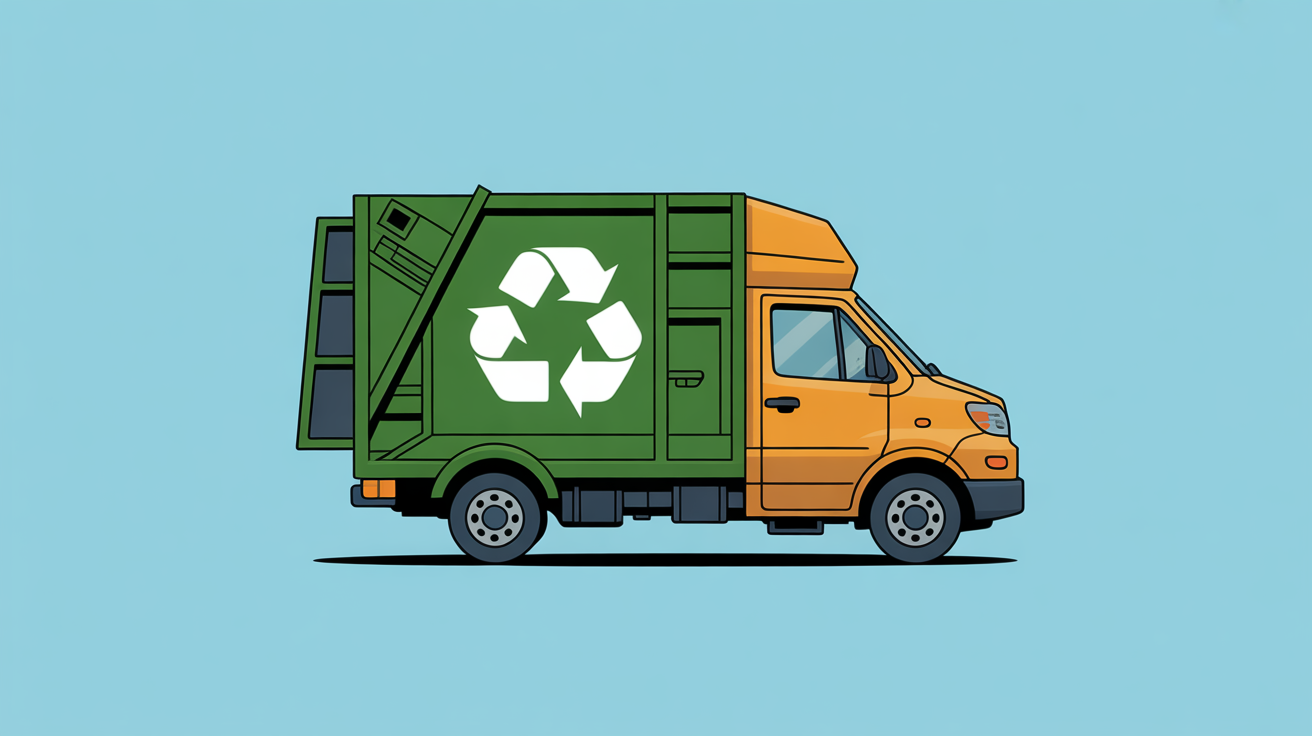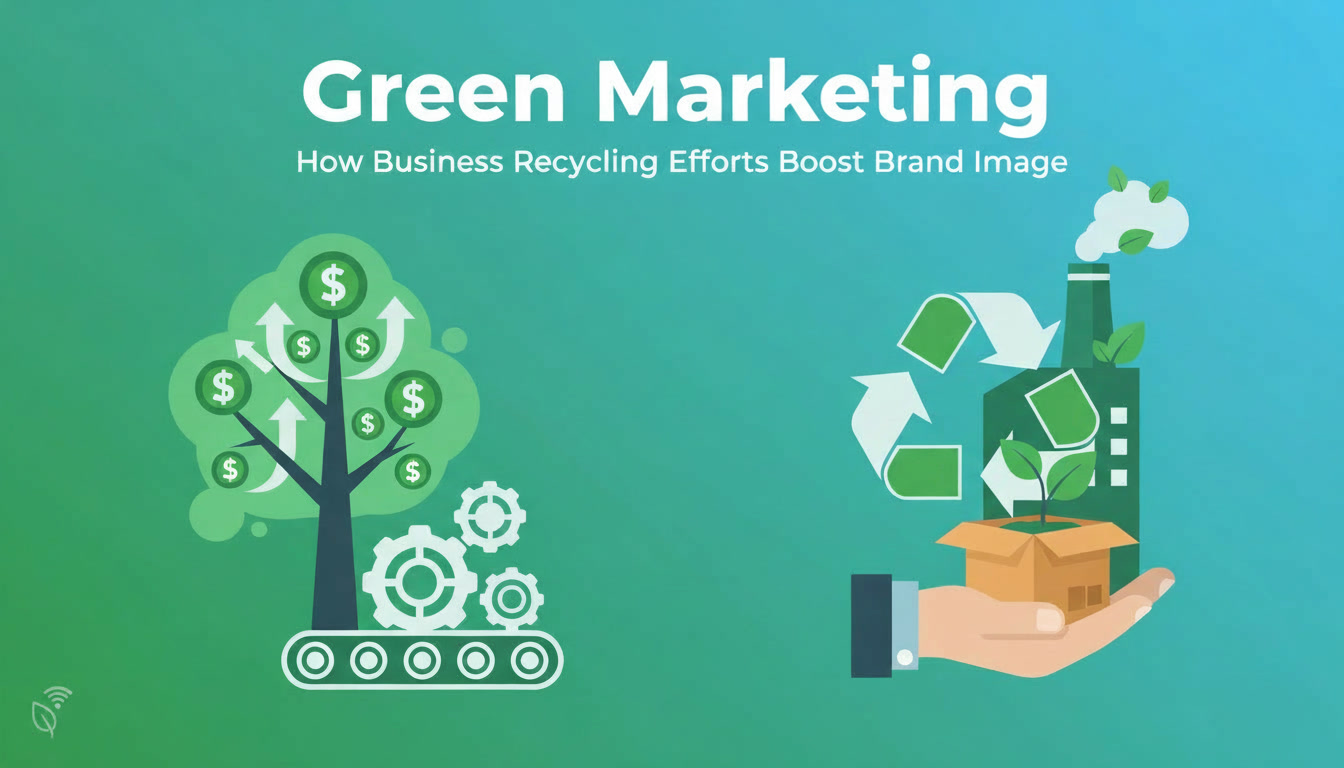Featured Snippet
Mobile recycling brings professional scrap removal directly to your facility, eliminating transportation logistics and reducing operational downtime by 2-3 hours per pickup. This on-site service allows businesses to maintain productivity while properly disposing of metals, electronics, and cardboard without dedicating staff or vehicles to recycling runs.
Video Summary:
Introduction: The Mobile Recycling Advantage
The Hidden Costs of Traditional Recycling Methods
Every hour your team spends hauling scrap metal to a recycling facility is an hour lost from productive work. Construction managers and facility operators across California face this challenge daily—balancing environmental responsibility with operational efficiency.
Traditional off-site recycling creates multiple pain points. You're pulling workers off their primary tasks to load trucks. You're dedicating vehicles that could be used elsewhere. And you're dealing with the logistics nightmare of coordinating trips to recycling centers during their operating hours. For businesses handling copper, aluminum, steel, or large volumes of cardboard bales, these inefficiencies compound quickly.
Consider the typical scenario: A construction site accumulates 2 tons of scrap metal over a week. Getting that material to a recycling facility requires:
- 2-3 employees spending 30-45 minutes loading
- A truck and driver for 1-2 hours round-trip
- Unloading time at the facility: 20-30 minutes
- Administrative time for weighing and paperwork
That's easily 3-4 labor hours lost per recycling run, not counting vehicle costs and fuel.
How Mobile On-Site Service Transforms Your Recycling Process
Mobile recycling flips this model entirely. Professional recyclers arrive at your location with their own trucks, equipment, and expertise. They handle sorting, loading, and hauling—all while your team continues working.
The process is straightforward:
1. Schedule a pickup based on your timeline, not the recycling center's hours
2. Continue operations while recycling professionals work on-site
3. Receive documentation for materials collected, weights, and compliance records
4. Maintain a cleaner, safer worksite with regular removal schedules
Willis Recycling's fleet of trucks, flatbeds, and semis handles everything from HVAC units to insulated wire. Their team manages the entire process, from initial assessment to final hauling, typically completing pickups within the same week of scheduling.
Real-World Impact: The Kaiser Permanente Case Study
When Kaiser Permanente needed to remove and recycle 125 medical beds, traditional methods would have meant significant facility disruption. Multiple trips, coordinating with patient care schedules, and managing logistics could have stretched the project over weeks.
Instead, Willis Recycling's mobile service completed the entire project in under 72 hours. Their team worked around the hospital's schedule, minimizing disruption to patient care while ensuring proper handling of medical equipment. This rapid turnaround kept the facility renovation on schedule and eliminated the need for temporary storage solutions.
This efficiency translates across industries. Electricians working on commercial upgrades can schedule pickups for copper and aluminum without leaving job sites. Construction project managers maintain cleaner, safer work areas with regular on-site removal of steel and other metals.
Beyond Time Savings: The Broader Benefits
Mobile recycling delivers advantages that extend beyond obvious time savings:
Enhanced Safety Compliance
Accumulated scrap creates trip hazards and potential injury risks. Regular on-site removal keeps work areas clear, reducing accident potential and improving OSHA compliance scores. Sites with scheduled mobile pickups report fewer safety incidents related to material handling.
Improved Site Appearance
Clean job sites make better impressions on clients, inspectors, and potential customers. For healthcare facilities and retail locations, maintaining a professional appearance while managing renovations or equipment updates becomes much simpler with mobile pickup services.
Environmental Impact Reduction
Fewer individual trips to recycling centers means less fuel consumption and reduced carbon emissions. When one professional recycling truck replaces dozens of smaller trips, the environmental benefit multiplies. Mobile services also ensure proper sorting and processing, maximizing material recovery rates.
Better Resource Allocation
Your skilled workers stay focused on their core responsibilities. Electricians wire buildings instead of hauling copper. Maintenance teams fix equipment instead of managing scrap removal. This proper resource allocation improves project timelines and reduces labor costs.
Making the Transition to Mobile Recycling
Implementing mobile recycling into your operations requires minimal adjustment. Start by:
- Assessing your recycling volume: Document how much metal, cardboard, or e-waste you generate weekly or monthly
- Designating collection areas: Create safe, accessible spots for material accumulation between pickups
- Establishing pickup schedules: Work with your mobile recycling partner to determine optimal collection frequency
- Training staff: Ensure teams know what materials to set aside and where to place them
For businesses handling specialized materials like insulated wire or HVAC units, mobile recyclers provide guidance on proper preparation and separation. This expertise ensures maximum value recovery and regulatory compliance.
Transform Your Recycling Approach Today
Mobile recycling isn't just convenient—it's a strategic operational improvement. By eliminating the logistics burden of traditional recycling, businesses across California save time, reduce costs, and maintain safer work environments.
Ready to experience the mobile advantage? Contact Willis Recycling at (916) 271-2691 to schedule your first on-site pickup and discover how professional mobile recycling can streamline your operations.
Frequently Asked Questions:
What exactly is 'on-site mobile recycling' and how does it differ from sending waste off-site?
On-site mobile recycling is a game-changer! Essentially, it means bringing specialized recycling equipment directly to your project site or facility where waste materials are generated. Instead of collecting your waste and trucking it long distances to an off-site processing plant or landfill, the recycling happens right there, on location.
The key difference lies in the logistics:
- Traditional Off-site Recycling: Waste materials (like concrete, asphalt, wood, or soil) are loaded onto trucks and transported, often across significant distances, to a centralized recycling facility or landfill. This involves fuel costs, wear and tear on vehicles, and potentially hefty tipping fees at the destination.
- On-site Mobile Recycling: A mobile crusher, screener, or other recycling unit is brought to your site. The waste materials are fed into this equipment, processed, and often transformed into reusable materials (like aggregate for base layers or mulch for landscaping) right then and there.
Think of it as bringing the recycling plant to your doorstep, rather than sending your waste to the plant!
What are the primary benefits of bringing recycling directly to my worksite?
Bringing recycling operations directly to your worksite offers a host of fantastic benefits that can significantly improve your operations and bottom line. Here are the main advantages:
- Significant Cost Savings: You reduce, or even eliminate, expenses related to transporting waste off-site (fuel, driver wages, vehicle maintenance) and avoid costly landfill tipping fees. You might also save money on purchasing new aggregate by reusing your own.
- Enhanced Efficiency: Waste materials are processed immediately, reducing clutter on your site and creating reusable materials on demand. This can speed up project timelines and streamline your workflow.
- Reduced Environmental Impact: Fewer trucks on the road mean lower fuel consumption and reduced carbon emissions. Plus, diverting materials from landfills conserves natural resources.
- Greater Control: You have direct oversight of the recycling process, ensuring quality control for your recycled materials and better managing your waste stream.
- Immediate Material Reuse: The recycled materials can often be used immediately back into the same project, eliminating the need to wait for deliveries of new materials.
It’s a win-win for your budget, your schedule, and the planet!
How does on-site mobile recycling actually save money and improve efficiency for businesses?
On-site mobile recycling isn't just a 'nice-to-have'; it's a strategic move that directly impacts your finances and operational speed. Here's how it delivers those savings and efficiency boosts:
Cost Savings:
- Eliminate Hauling Costs: This is huge! You cut out the fuel, labor, and truck maintenance associated with transporting waste off-site to a landfill or processing facility.
- Avoid Landfill Tipping Fees: Landfill fees can be substantial. By recycling materials on-site, you divert waste and sidestep these expensive charges.
- Reduce Material Purchase Costs: Many materials, like concrete and asphalt, can be recycled into high-quality aggregates usable on your site. This means you don't have to buy and transport new virgin materials, leading to significant savings.
- Potential Revenue Stream: In some cases, excess recycled material can even be sold, turning waste into a valuable commodity.
Improved Efficiency:
- Faster Project Turnaround: With materials processed and ready for reuse on-site, there are no delays waiting for new deliveries or for off-site processing. This keeps your project moving.
- Reduced Site Congestion: Less need for trucks coming and going to haul waste reduces traffic and frees up valuable space on your worksite.
- Streamlined Logistics: Instead of managing multiple vendors for waste removal and material delivery, you simplify your supply chain by processing materials yourself.
- Better Resource Allocation: Your team spends less time dealing with waste logistics and more time on core project tasks.
By transforming waste into a resource where it's created, you streamline your entire operation and unlock significant financial advantages.
Beyond cost, what are the environmental advantages of choosing on-site mobile recycling?
While cost savings are a powerful motivator, the environmental benefits of on-site mobile recycling are equally compelling and contribute to a more sustainable future. Here’s why it’s a greener choice:
- Reduced Carbon Emissions: Fewer trucks on the road mean less fuel consumption and significantly lower greenhouse gas emissions. This directly reduces your project's carbon footprint.
- Conservation of Natural Resources: By reusing materials like concrete, asphalt, and wood, you decrease the demand for virgin materials that require quarrying, mining, or logging. This preserves natural landscapes and reduces the environmental impact of extraction.
- Less Landfill Waste: Diverting waste from landfills extends their lifespan, reduces methane gas emissions (a potent greenhouse gas often produced by decomposing organic waste), and minimizes land pollution.
- Local Ecosystem Protection: By reducing the need for new aggregate extraction, you help protect local ecosystems that might otherwise be disturbed by quarrying activities.
- Promotion of a Circular Economy: On-site recycling embodies the principles of a circular economy, where resources are kept in use for as long as possible, extracting maximum value from them while in use, then recovering and regenerating products and materials at the end of each service life.
Choosing on-site mobile recycling is a tangible way to demonstrate your commitment to environmental stewardship and responsible business practices.
What should I consider if I'm thinking about implementing on-site mobile recycling for my operations?
Implementing on-site mobile recycling can be a fantastic strategic move, but like any significant operational change, it benefits from careful planning. Here are some key considerations to help you get started:
- Type and Volume of Waste: What materials are you generating (e.g., concrete, asphalt, brick, wood, soil)? How much of each? This will determine the type and size of mobile recycling equipment you'll need.
- Site Space and Accessibility: Do you have enough clear, flat, and stable space on your worksite to safely operate and maneuver the mobile recycling equipment? Consider access for delivery, setup, and maintenance.
- Local Regulations and Permits: Check with local authorities for any environmental regulations, noise restrictions, dust control requirements, or permits needed for operating crushing or screening equipment on your site.
- Equipment Selection and Operation: Research different types of mobile crushers, screeners, and other recycling machinery. Will you purchase, rent, or lease the equipment? Do you have trained personnel to operate it safely and efficiently, or will you use a service provider?
- Material End-Use: How will you use the recycled material? Will it be for immediate re-application on the same project, or will it be stockpiled for future use or even sale? Ensure the quality of the output meets your project specifications.
- Cost-Benefit Analysis: Conduct a thorough analysis comparing your current waste disposal costs (hauling, tipping fees) with the costs of on-site recycling (equipment rental/purchase, fuel, labor, maintenance). Don't forget to factor in savings from not having to buy new materials.
- Logistics and Safety Plan: Develop a plan for material flow on-site (from generation to processing to reuse). Prioritize safety with clear operational zones, personal protective equipment (PPE), and emergency procedures.
By thoughtfully considering these points, you can ensure a smooth transition to a more efficient and sustainable recycling operation.



